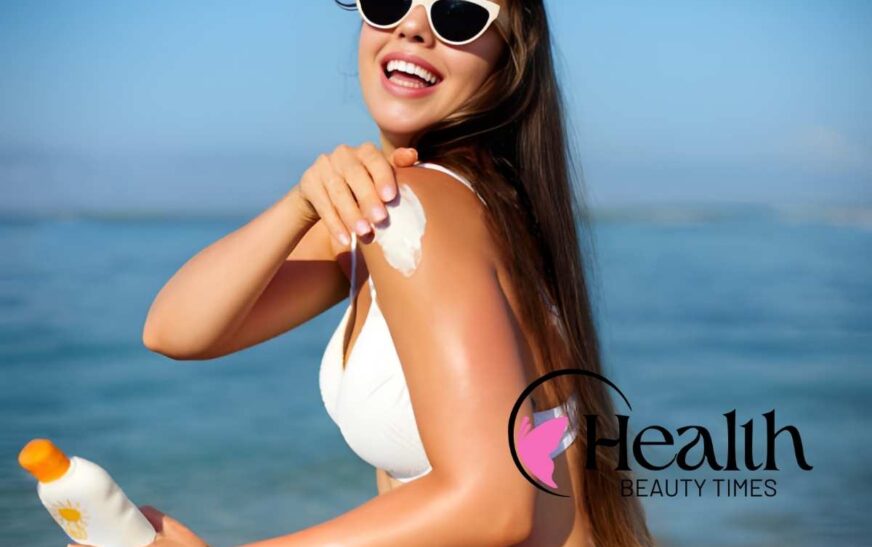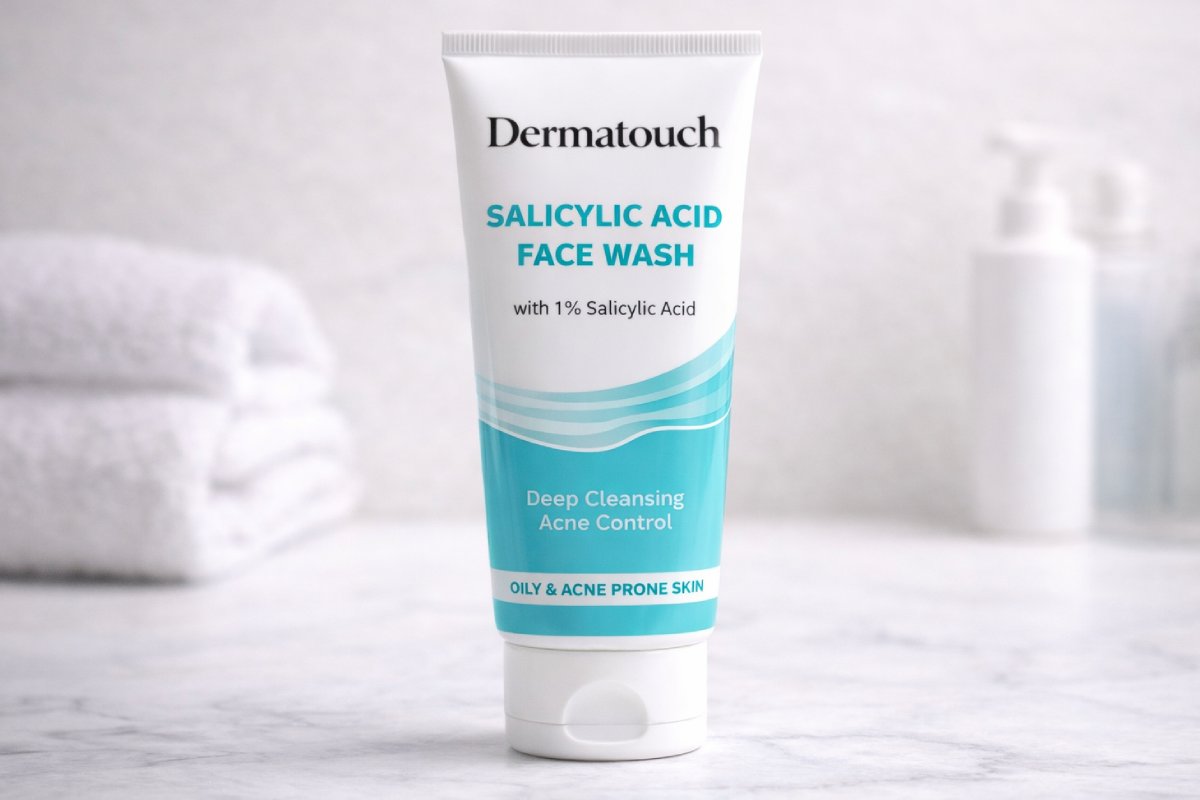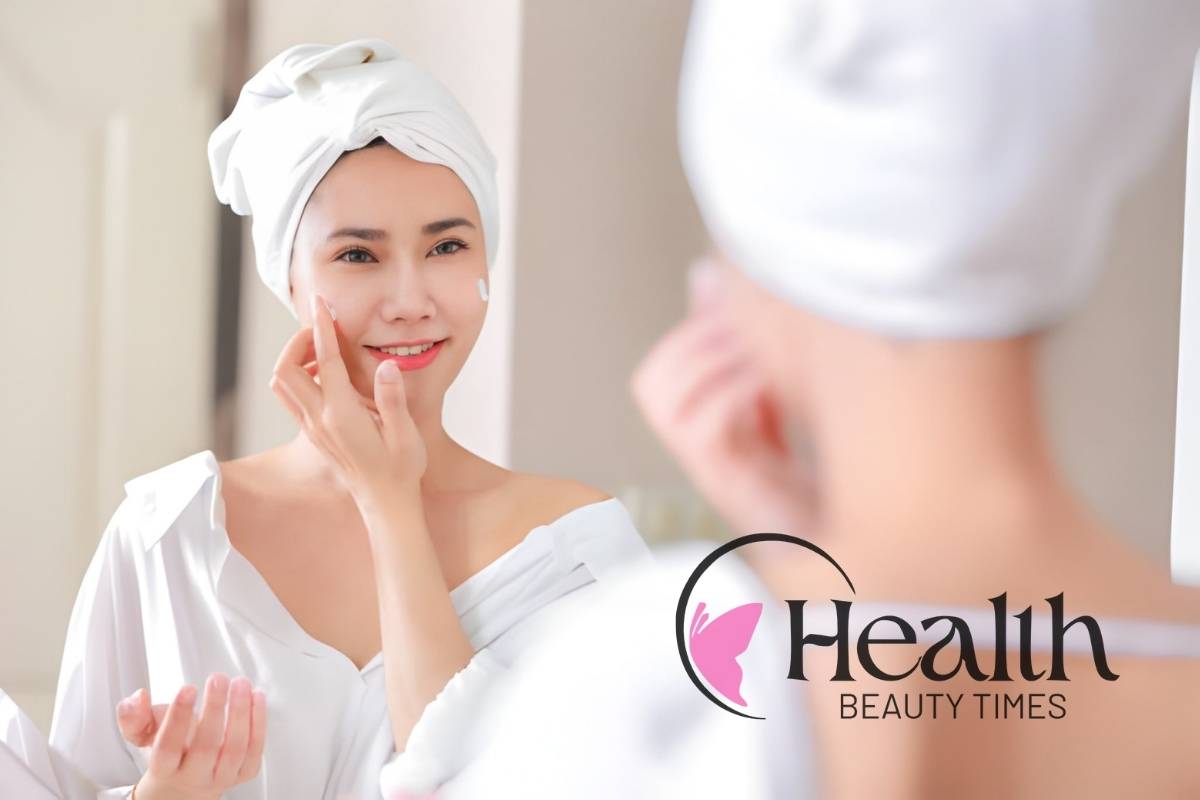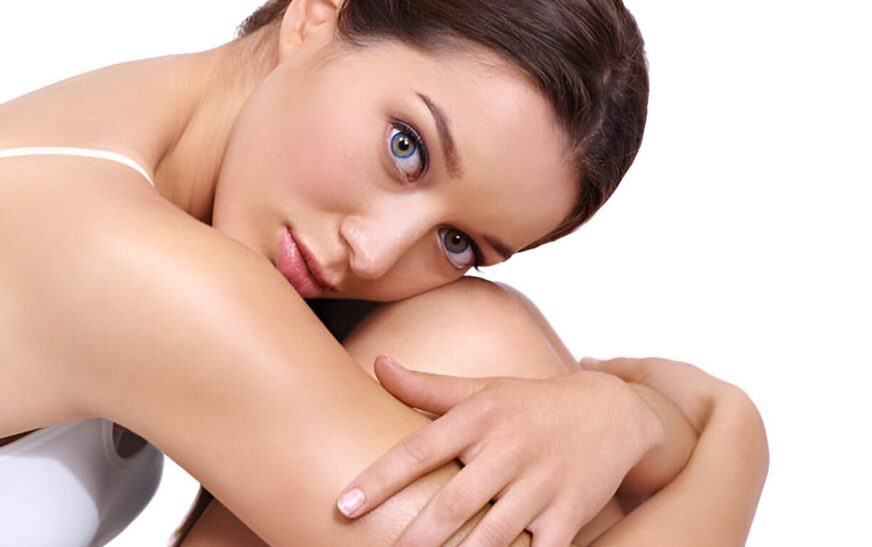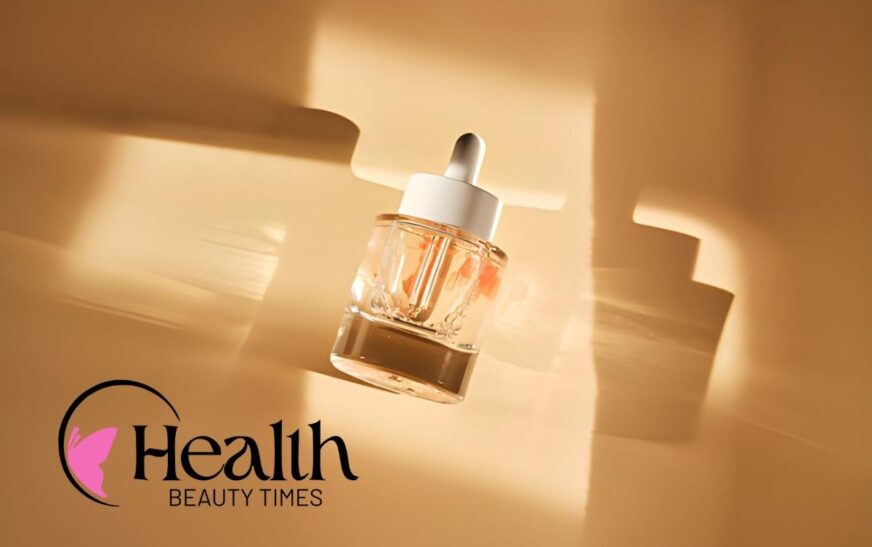Sun protection is the single most important step in any skincare routine — dermatologists unanimously agree on this. Yet most Indians skip sunscreen because traditional formulas leave a white cast, feel greasy, or pill under makeup. That’s exactly the gap Hyphen sunscreen was built to fill.
In this complete 2026 guide, we review Hyphen sunscreen in full — its formula, ingredients, real-world performance on Indian skin, honest pros and cons, and how to use it correctly for maximum protection.
What Is Hyphen Sunscreen?
Hyphen sunscreen is a hybrid broad-spectrum SPF 50 PA++++ sunscreen-cum-moisturizer launched by the Indian D2C skincare brand Hyphen. It is co-created with actor and entrepreneur Kriti Sanon and formulated specifically keeping Indian skin tones and climate conditions in mind.
Quick Definition: Hyphen sunscreen is a lightweight, non-comedogenic, hybrid SPF 50 PA++++ sunscreen that combines UVA + UVB protection with skincare actives like niacinamide, hyaluronic acid, and centella asiatica — designed for everyday use in Indian weather.
The “hybrid” formulation means it combines both chemical and physical (mineral) UV filters, giving you the cosmetic elegance of a chemical sunscreen with the skin-calming benefits of a mineral one.
Who Is Hyphen Sunscreen For?
Hyphen sunscreen is ideal for:
- Oily and combination skin — the gel-cream texture controls shine without heaviness
- People prone to white cast — the hybrid formula is formulated to be virtually invisible on medium to deep Indian skin tones
- Skincare minimalists — it doubles as a moisturizer, cutting down routine steps
- Daily commuters in Indian cities — PA++++ rating provides high UVA protection against Indian sun intensity
- Makeup wearers — its smooth, non-pilling texture makes it an excellent makeup base
- Beginners to SPF — simple application, no complicated layering
Who Should Approach With Caution?
- People with very dry skin may need an additional moisturizer underneath, as the formula is more hydrating than occlusive
- Those with chemical sunscreen allergies (e.g., sensitivity to avobenzone or octinoxate) should check the ingredient list carefully
- People with extremely sensitive or reactive skin should patch test before full-face application
- Anyone with severe acne should monitor skin response, as the formula contains some occlusive elements
Hyphen Sunscreen Ingredients: Full Breakdown
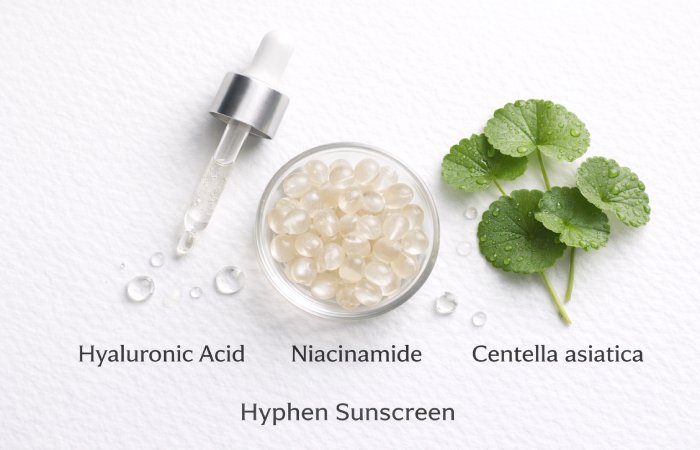
This is where Hyphen sunscreen genuinely stands out from typical Indian market SPFs.
| Ingredient | Function | Why It Matters |
|---|---|---|
| Zinc Oxide | Physical UV filter | Reflects UVB + UVA rays, calms inflammation |
| Octinoxate / Chemical Filters | Chemical UV absorption | Lightweight, cosmetically elegant protection |
| Niacinamide (5%) | Brightening, barrier support | Reduces pigmentation, controls oil |
| Hyaluronic Acid | Humectant, hydration | Plumps skin, prevents sunscreen from drying the skin |
| Centella Asiatica | Soothing, anti-inflammatory | Calms post-sun exposure redness |
| Peptides | Anti-ageing support | Stimulates collagen, targets fine lines over time |
| Allantoin | Skin-calming | Reduces irritation and sensitivity |
| Glycerin | Moisture retention | Keeps skin comfortable throughout the day |
According to a 2023 review in Photodermatology, Photoimmunology & Photomedicine, hybrid sunscreens combining zinc oxide with chemical UV filters deliver superior broad-spectrum protection with fewer cosmetic trade-offs — particularly for individuals with melanin-rich skin tones where white cast is a common complaint.
For a science-backed understanding of how SPF ratings and PA ratings actually work, Healthline’s comprehensive guide on SPF and sun protection is a trusted, dermatologist-reviewed resource that demystifies what SPF 50 PA++++ really means for your skin.
What Does SPF 50 PA++++ Actually Mean?
This is one of the most misunderstood aspects of sunscreen — even among regular SPF users.
SPF (Sun Protection Factor) measures protection against UVB rays — the rays that cause sunburn and surface skin damage.
- SPF 30 blocks ~97% of UVB rays
- SPF 50 blocks ~98% of UVB rays
- SPF 100 blocks ~99% of UVB rays
The difference between SPF 30 and SPF 50 is smaller than marketing suggests — but for daily Indian sun exposure, SPF 50 provides a meaningful extra buffer.
PA (Protection Grade of UVA) measures protection against UVA rays — the rays that penetrate deeper, cause tanning, hyperpigmentation, and long-term skin ageing.
- PA+ = Some protection
- PA++ = Moderate protection
- PA+++ = High protection
- PA++++ = Extremely high protection ✅
Hyphen’s PA++++ rating is the highest available and particularly relevant for India, where UVA radiation is intense year-round — even on cloudy days.
Benefits of Hyphen Sunscreen
1. Zero White Cast on Indian Skin Tones The hybrid formula is specifically tuned to work across medium to deep skin tones without the chalky white finish that mineral-only sunscreens often leave. This alone addresses the #1 reason Indians skip sunscreen.
2. Lightweight, Non-Greasy Finish The gel-cream texture absorbs quickly and doesn’t sit on top of skin. Ideal for humid Indian summers where heavy sunscreens feel suffocating.
3. Skincare-First Formulation With niacinamide, hyaluronic acid, peptides, and centella asiatica, Hyphen sunscreen works as a skincare product alongside UV protection — meaning your skin gets active benefits, not just a protective film.
4. Excellent Makeup Base The smooth, matte-ish finish makes it one of the better sunscreens to apply under foundation or tinted moisturizer. It doesn’t pill or separate with makeup.
5. Broad-Spectrum PA++++ Protection Given India’s intense UVA environment, PA++++ is the gold standard. This rating provides meaningful protection against tanning, dark spots, and premature ageing — not just sunburn.
6. Fragrance-Conscious Formula Hyphen sunscreen is low-fragrance compared to many Indian market SPFs, reducing the risk of irritation for those with mild fragrance sensitivity.
Drawbacks and Honest Limitations
1. May Not Be Enough for Outdoor Activities For extended outdoor exposure — beach days, trekking, outdoor sports — a water-resistant SPF 50+ specifically designed for outdoor use provides better protection. Reapply every 2 hours regardless.
2. Dry Skin May Need Layering Those with very dry or dehydrated skin may find the hydration level insufficient as a standalone moisturizer + SPF, especially in winter months.
3. Not Water-Resistant Like most elegant, everyday hybrid sunscreens, Hyphen’s formula is not water-resistant. Avoid heavy sweating or swimming without reapplication.
4. Premium Price Point Compared to budget SPF options in India, Hyphen sunscreen sits at a mid-to-premium price. However, for the ingredient quality and formulation, most users find it good value.
5. Availability Gaps Primarily available online via Hyphen’s website and major e-commerce platforms. Offline availability is limited outside metro cities.
How to Apply Hyphen Sunscreen Correctly (Step-by-Step)
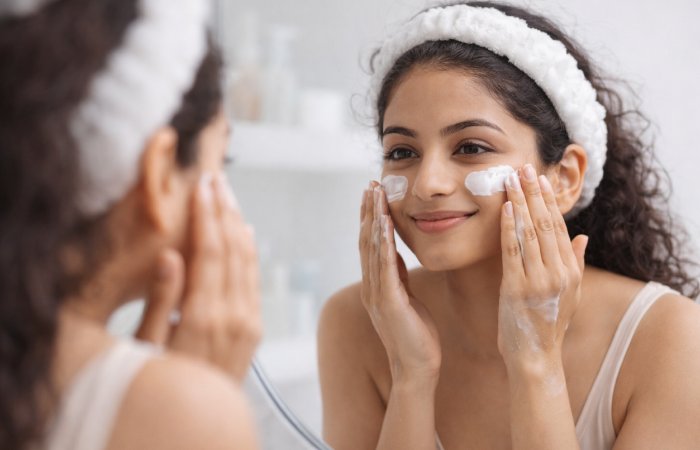
Application technique directly impacts how well your sunscreen actually protects you. Most people use far too little.
Step 1: Finish your skincare routine first Apply your serum and moisturizer (if using a separate one). Allow them to absorb for 1–2 minutes before sunscreen.
Step 2: Use the “two-finger rule” for quantity Dispense sunscreen across two fingers (index + middle finger, full length). This is the clinically recommended amount for adequate face coverage. Most people use half this — which dramatically reduces actual SPF received.
Step 3: Dot onto forehead, cheeks, nose, and chin Dotting first ensures even distribution before blending.
Step 4: Blend gently outward in upward strokes Don’t rub vigorously — this disturbs even coverage and reduces protection.
Step 5: Extend to neck, ears, and décolletage These are commonly forgotten areas that are directly exposed to Indian sun and show ageing fastest.
Step 6: Wait 2–3 minutes before applying makeup Give the sunscreen time to settle before foundation or powder.
Reapplication Rule:
- Indoors (near windows): Every 4 hours
- Outdoors: Every 2 hours without exception
- After sweating heavily or touching your face repeatedly: Reapply
Common Sunscreen Mistakes (That Make Your SPF Useless)
Mistake 1: Not using enough product Using half the recommended amount gives you significantly less than the labelled SPF. Always use two finger lengths.
Mistake 2: Applying sunscreen only on sunny days UVA rays penetrate clouds and glass. You need SPF every day — at your desk, in the car, on overcast days.
Mistake 3: Skipping reapplication SPF doesn’t last all day. No sunscreen, including Hyphen, lasts more than 2–4 hours under real-world conditions.
Mistake 4: Applying sunscreen over makeup If you reapply by patting over foundation, you’re not getting effective coverage. Use an SPF setting spray or pressed powder SPF for mid-day reapplication over makeup.
Mistake 5: Waiting until you’re already outside Chemical UV filters require 15–20 minutes to activate after application. Apply at the end of your morning routine — before you step out.
Myths vs Facts: Hyphen Sunscreen Edition
| Myth | Fact |
|---|---|
| “Darker skin doesn’t need sunscreen” | Melanin provides only SPF ~13 natural protection — far below what’s needed for UV damage prevention |
| “SPF in foundation is enough” | Foundation SPF covers a fraction of required dose; a dedicated SPF is always necessary |
| “Sunscreen causes breakouts” | Non-comedogenic formulas like Hyphen are specifically designed not to clog pores |
| “One application lasts all day” | No sunscreen lasts all day — reapplication every 2 hours is non-negotiable |
| “Sunscreen is only for summer” | UVA radiation is consistent year-round in India, regardless of temperature or season |
Hyphen Sunscreen vs Competitors: How Does It Compare?
| Feature | Hyphen SPF 50 PA++++ | Minimalist SPF 50 | Dot & Key SPF 50 | Re’equil SPF 50 |
|---|---|---|---|---|
| PA Rating | PA++++ | PA++++ | PA+++ | PA++++ |
| White Cast | Minimal ✅ | Minimal ✅ | Low | Minimal ✅ |
| Niacinamide | ✅ Yes | ✅ Yes | ❌ No | ❌ No |
| Hyaluronic Acid | ✅ Yes | ❌ No | ✅ Yes | ❌ No |
| Peptides | ✅ Yes | ❌ No | ❌ No | ❌ No |
| Texture | Gel-cream | Fluid | Gel | Fluid |
| Price (approx.) | ₹595–695 | ₹349–399 | ₹595–695 | ₹550–650 |
| Makeup Base | Excellent ✅ | Good | Good | Good |
Hyphen justifies its price point through its multi-active ingredient stack. If budget is the primary concern, Minimalist SPF 50 PA++++ is the closest science-backed alternative at a lower price — but it lacks the peptide and hyaluronic acid boost.
The American Academy of Dermatology’s sunscreen FAQ provides internationally recognized guidelines on what to look for in a daily sunscreen — making it a useful checklist when evaluating any SPF product, including Hyphen.
Real-World Use: What 8 Weeks of Daily Hyphen Sunscreen Use Looks Like
Week 1–2: Skin adjusts to the new formula. The lightweight texture feels noticeably different from heavier sunscreens. No breakouts for most users who patch test beforehand.
Week 3–4: Skin appears more even in tone. Niacinamide begins showing early brightening effects. Tan lines from previous sun exposure may start to soften.
Week 5–6: Significant improvement in post-acne dark spots and sun-induced hyperpigmentation when combined with a vitamin C serum in the morning.
Week 7–8: Overall skin texture feels smoother. Consistent protection means new tanning and UV-triggered breakouts are reduced noticeably.
Consistent daily use and proper reapplication are mandatory for these results. Sunscreen is protective — it prevents damage, it does not reverse existing damage on its own.
Best Skincare Routine to Pair With Hyphen Sunscreen
Morning Routine (Recommended):
- Gentle face wash (e.g., Dermatouch or CeraVe)
- Vitamin C serum (5–15% ascorbic acid or ethyl ascorbic acid)
- Lightweight moisturizer (if dry skin)
- Hyphen sunscreen — two finger lengths, full coverage
Evening Routine:
- Double cleanse (micellar water → face wash) to remove sunscreen thoroughly
- Niacinamide or retinol serum
- Night cream or sleeping mask
Key pairing tip: Vitamin C in the morning + Hyphen SPF is one of the most powerful anti-ageing and anti-pigmentation duos in skincare. Vitamin C boosts SPF efficacy and targets existing pigmentation simultaneously.
Expert Tips for Getting the Most Out of Hyphen Sunscreen
- Store away from direct sunlight — UV and heat degrade sunscreen filters over time, reducing efficacy
- Check the expiry date — sunscreen filters lose potency after expiry; never use an expired SPF
- Don’t mix with actives immediately — applying Hyphen directly over AHA/BHA actives without letting them absorb first may dilute both products
- Use a dedicated SPF powder for reapplication over makeup — this is more practical than reapplying cream SPF over foundation mid-day
- Apply 20 minutes before sun exposure to allow chemical filters to fully activate
Final Verdict
Hyphen sunscreen is one of the most well-rounded everyday SPFs available in India’s D2C skincare market right now. It delivers on its core promise — broad-spectrum SPF 50 PA++++ protection without the white cast, greasiness, or pill-under-makeup problems that make most Indians abandon sunscreen altogether.
The addition of niacinamide, hyaluronic acid, centella asiatica, and peptides elevates it beyond a basic SPF into a genuine skincare product. At its price point, it offers strong value for anyone who wants one hardworking product in their morning routine.
If you’re serious about preventing hyperpigmentation, early ageing, and sun-triggered breakouts in the Indian climate — Hyphen sunscreen deserves a permanent spot in your morning routine.
6. FAQs
Q1: Is Hyphen sunscreen suitable for oily skin? Yes. Its gel-cream, non-greasy texture is specifically designed for oily and combination skin. It controls shine without leaving a heavy film.
Q2: Does Hyphen sunscreen leave a white cast? For most Indian (medium to deep) skin tones, white cast is minimal to none. Very fair skin tones may notice a very slight luminous finish that blends in quickly.
Q3: Can I use Hyphen sunscreen as a moisturizer? For normal to oily skin, yes — the hyaluronic acid and glycerin provide sufficient daily hydration. Dry skin types may need a lightweight moisturizer underneath.
Q4: Is Hyphen sunscreen safe during pregnancy? Consult your dermatologist or OB-GYN. Some chemical UV filters are commonly used during pregnancy, but medical guidance is recommended for the safest choice.
Q5: Can Hyphen sunscreen be used under makeup? Absolutely. Its smooth, non-pilling texture makes it one of the best sunscreens for use as a makeup base in the Indian market.
Q6: How often should I reapply Hyphen sunscreen? Every 2 hours when outdoors. Every 4 hours if indoors near windows. Always reapply after sweating heavily or washing your face.
Q7: Is Hyphen sunscreen cruelty-free? Hyphen has positioned itself as a conscious skincare brand. Check their official website or product packaging for the most current cruelty-free and vegan certification status.
Q8: What is the price of Hyphen sunscreen in India? Hyphen sunscreen is priced approximately between ₹595–695 for a 50g tube. Check the official Hyphen website or major e-commerce platforms for current pricing and offers.
Final Conclusion
The science is unambiguous — daily broad-spectrum sun protection is the most effective anti-ageing, anti-pigmentation investment you can make for your skin. Hyphen sunscreen makes that investment easier, more effective, and genuinely enjoyable to use on Indian skin. With SPF 50 PA++++ protection, a skin-loving ingredient stack, and a formula engineered for Indian climate conditions, it removes every excuse for skipping sunscreen. Make Hyphen sunscreen the non-negotiable last step of your morning routine — your future skin will show the difference.
Disclaimer: This article is for informational purposes only and does not constitute medical advice. Individual results may vary. Consult a dermatologist for personalized skincare recommendations.

